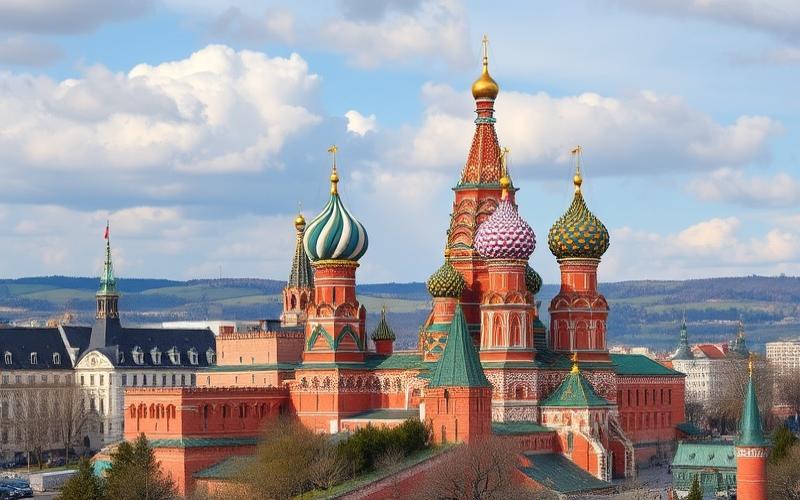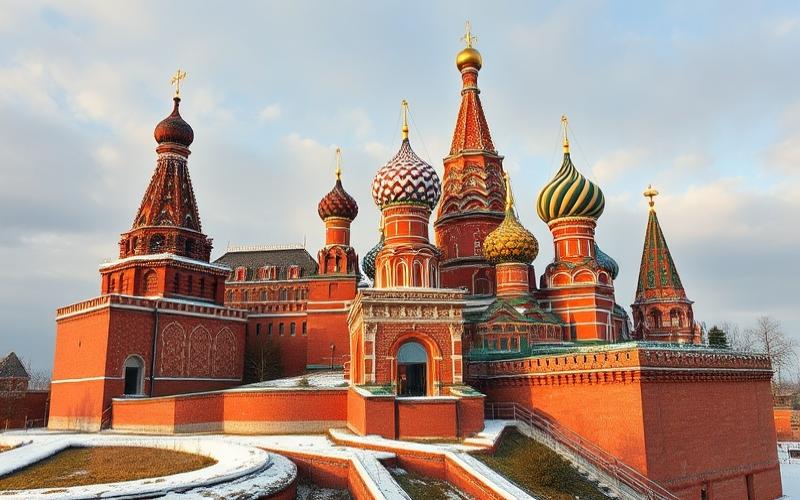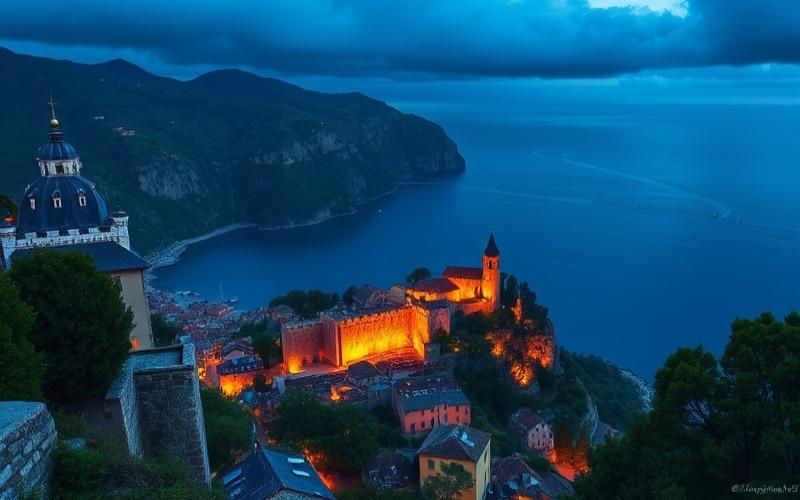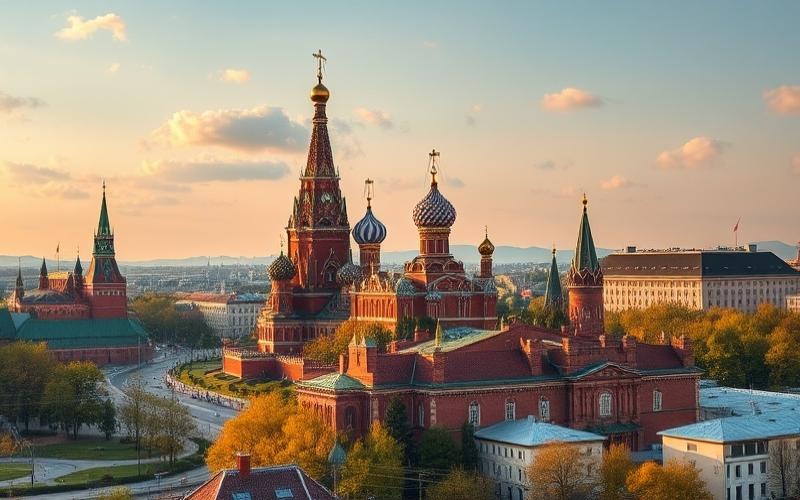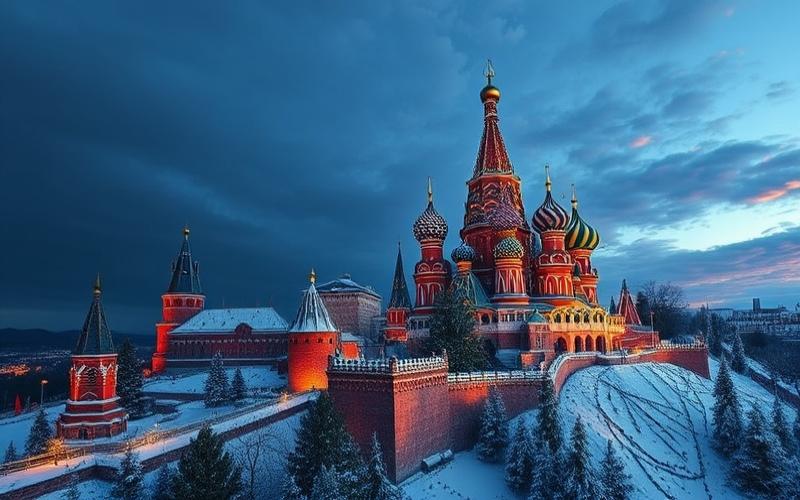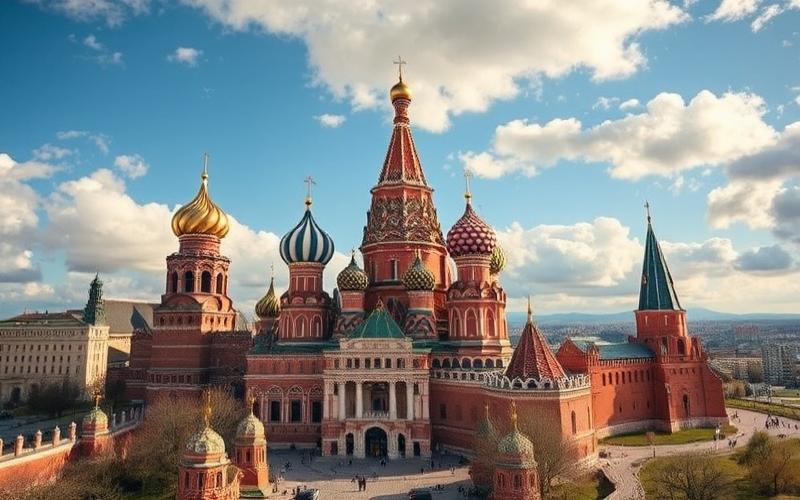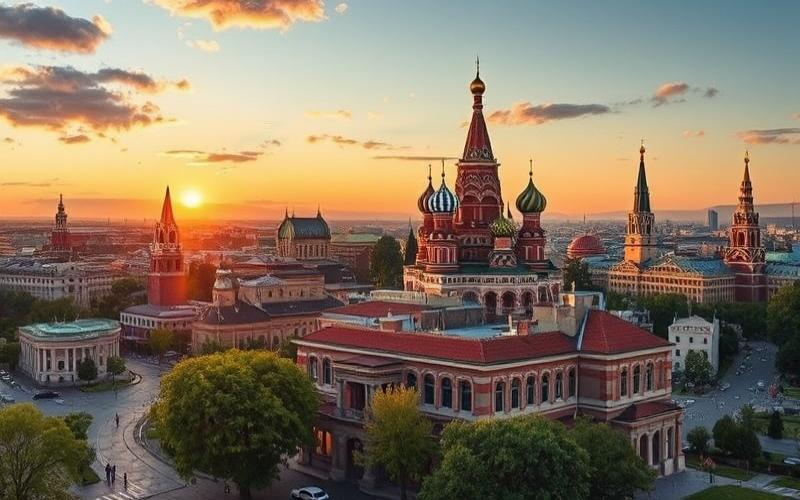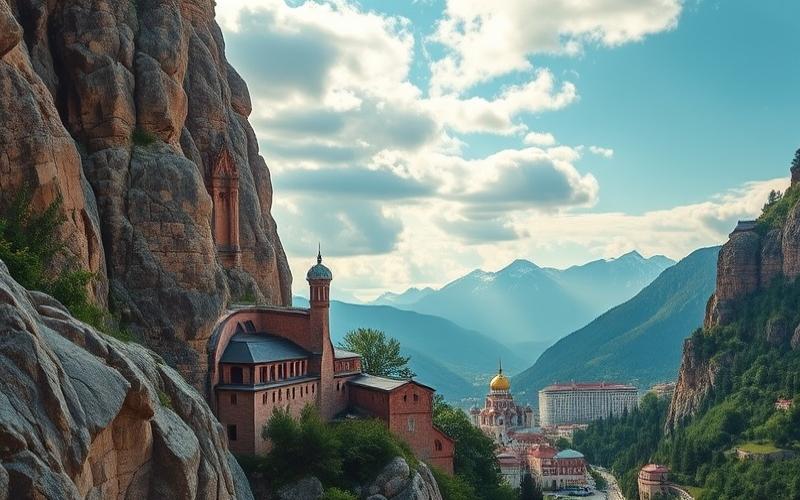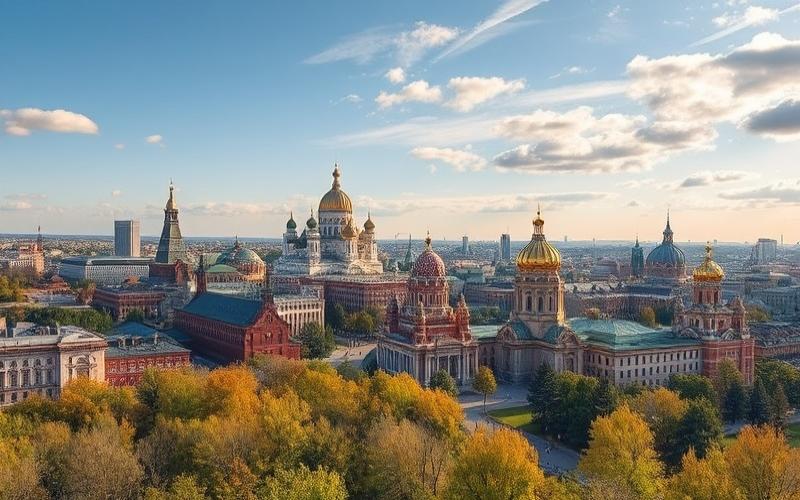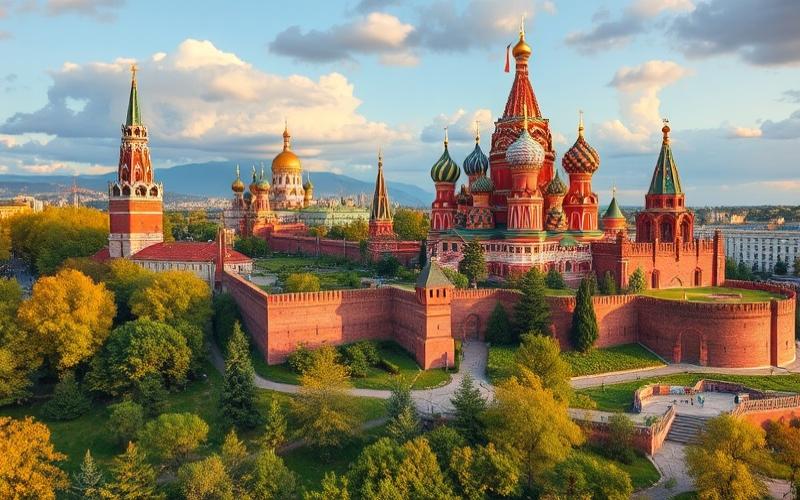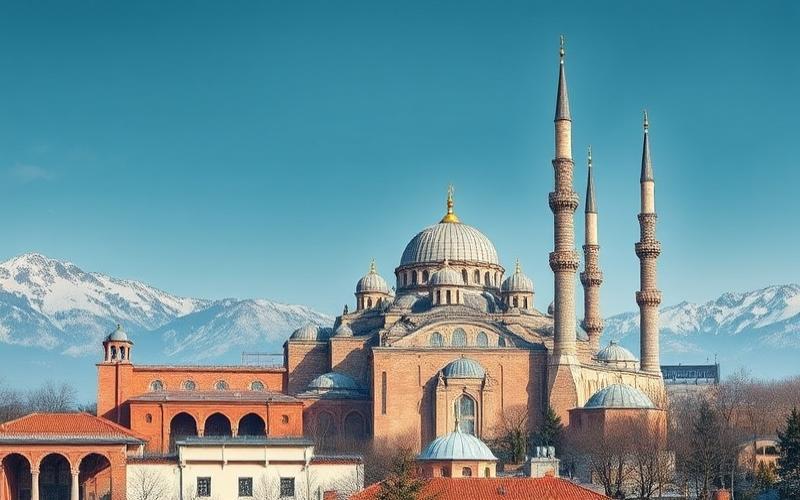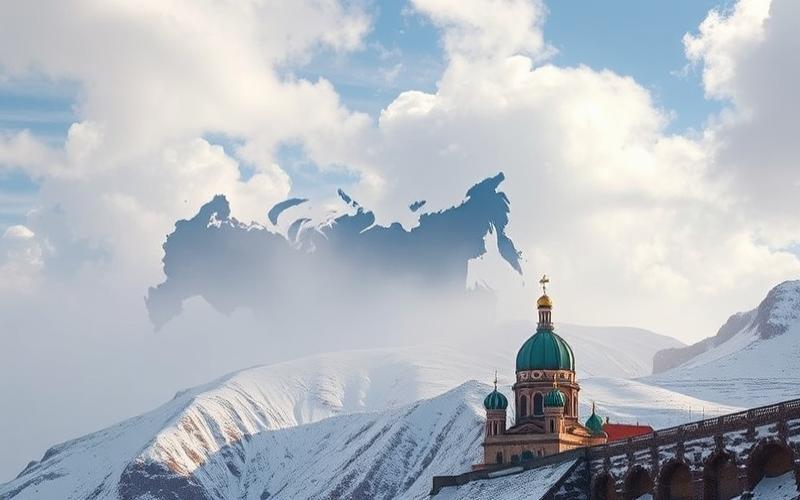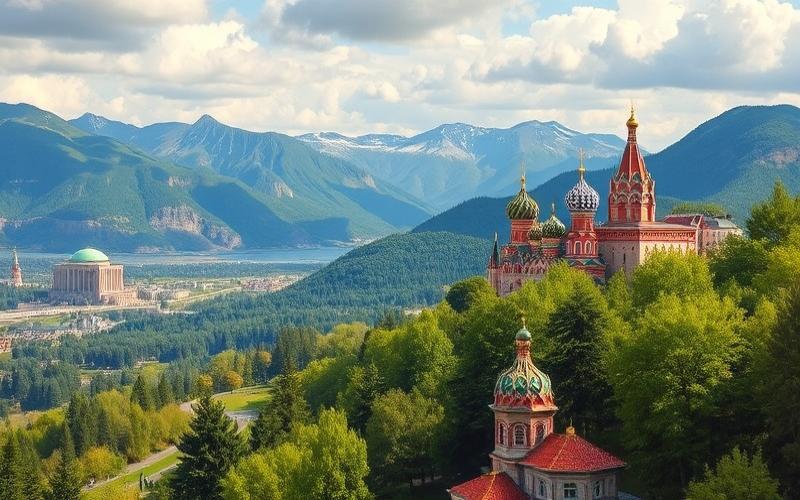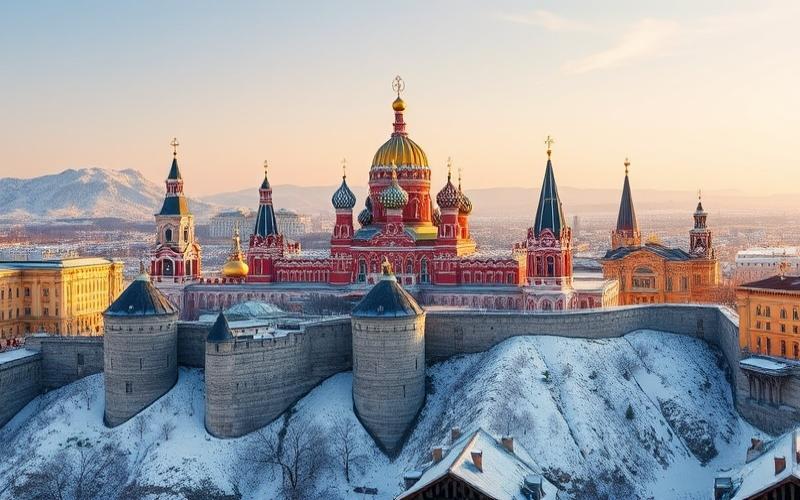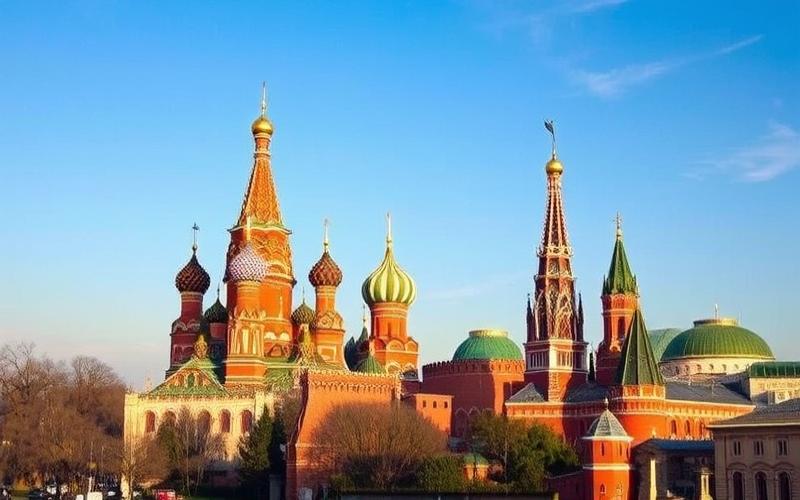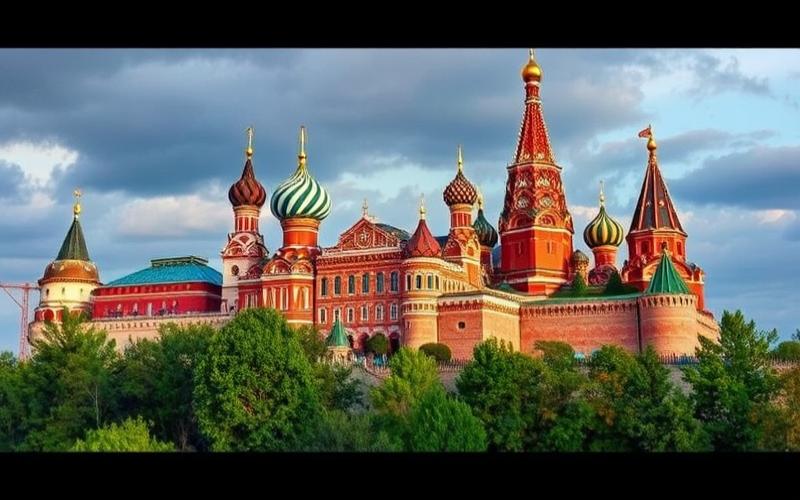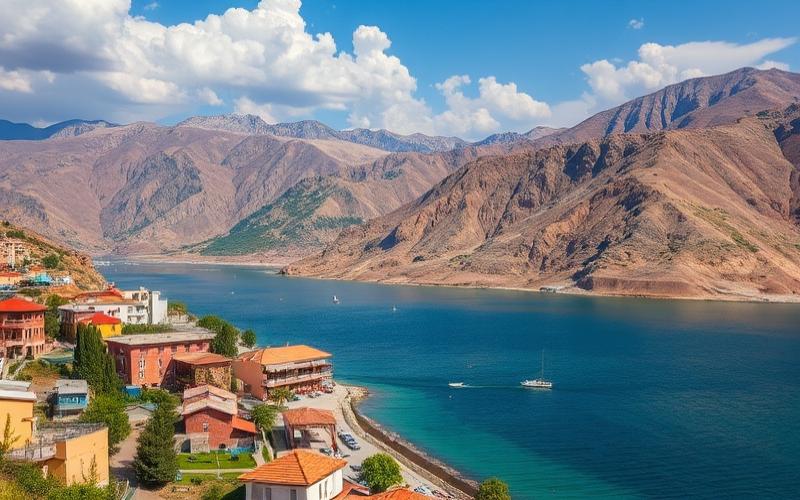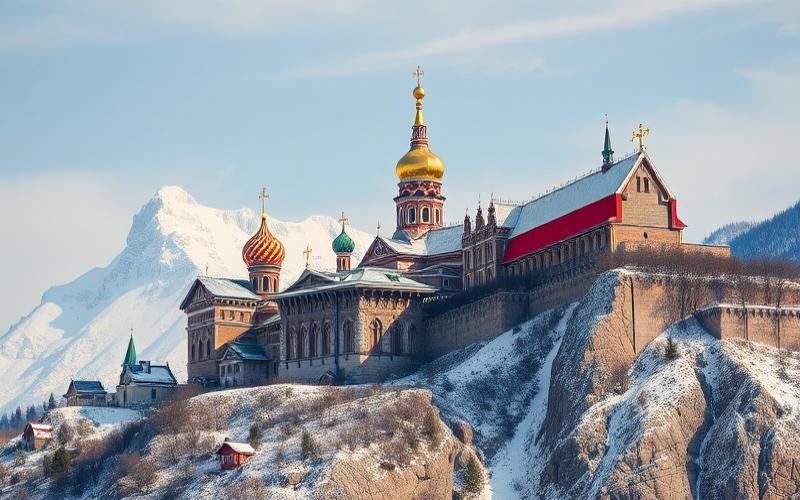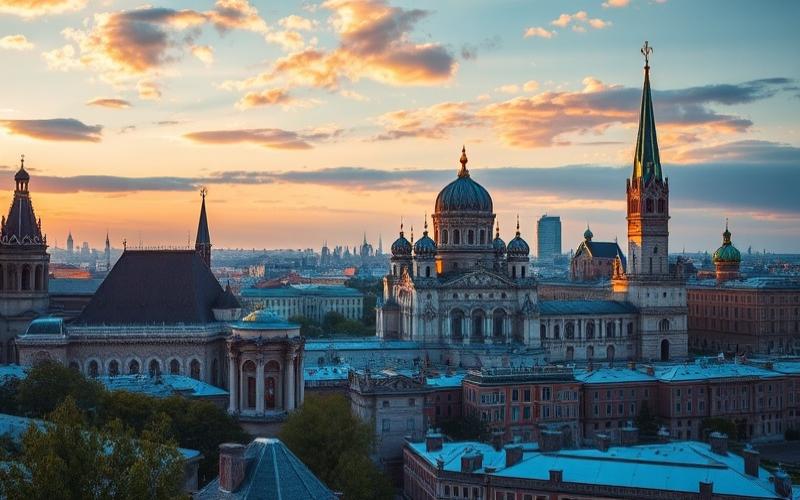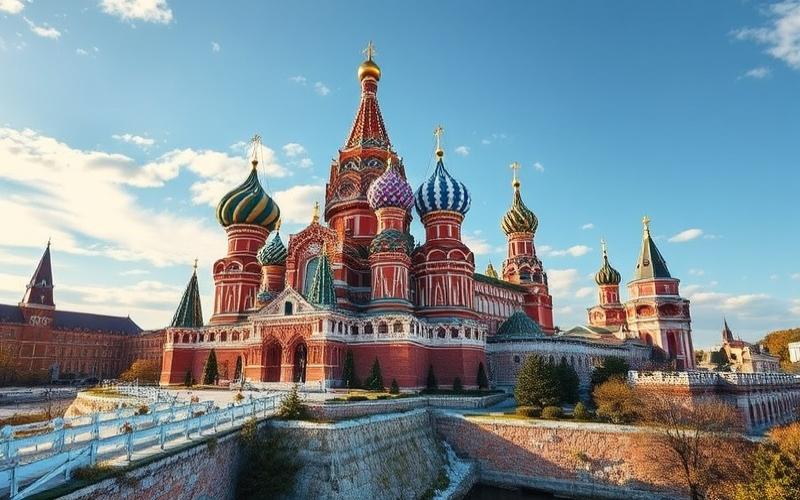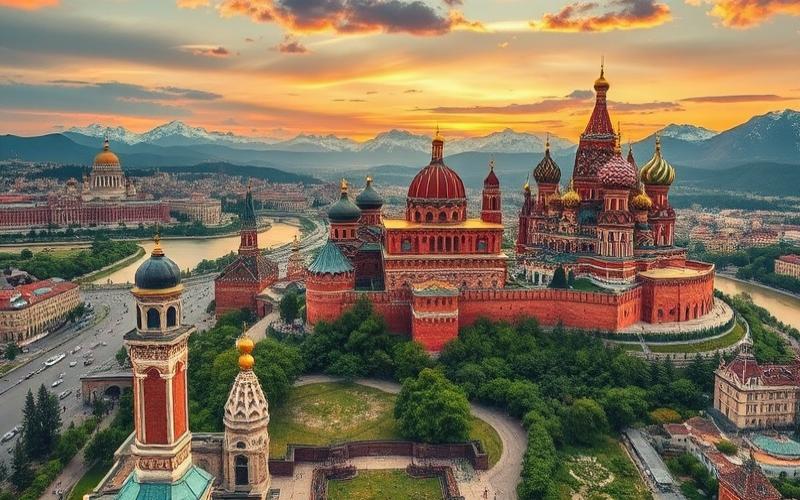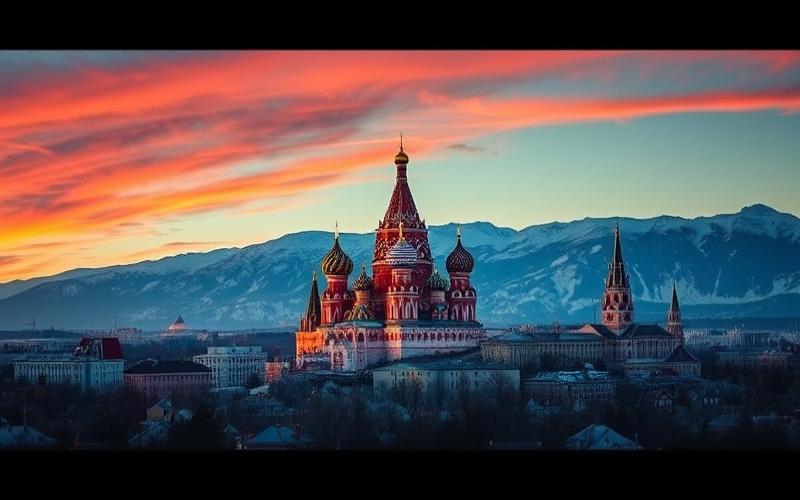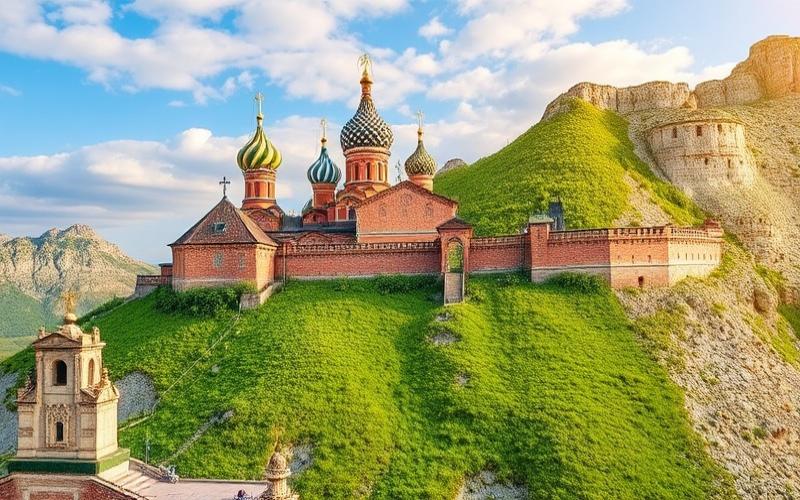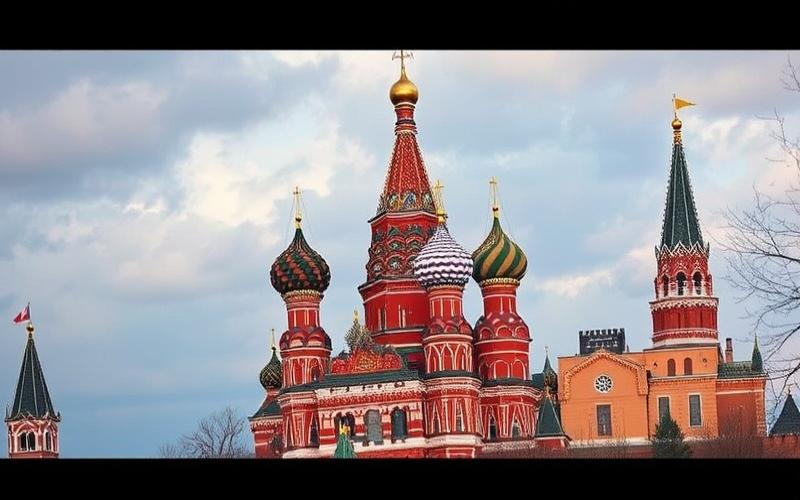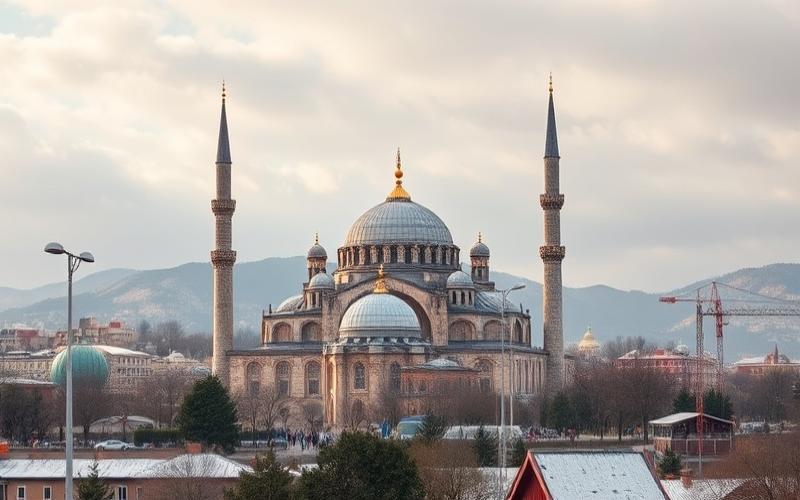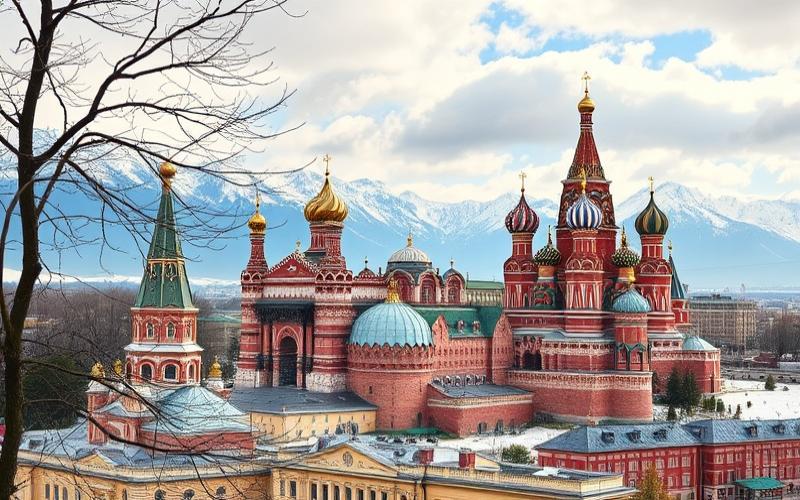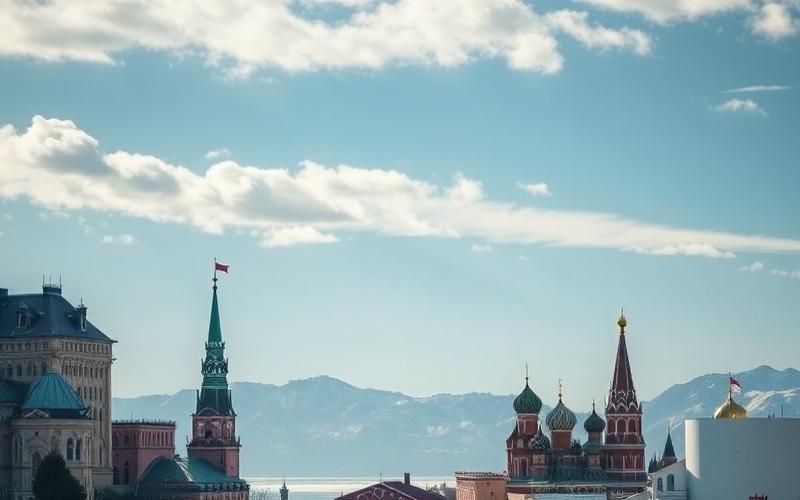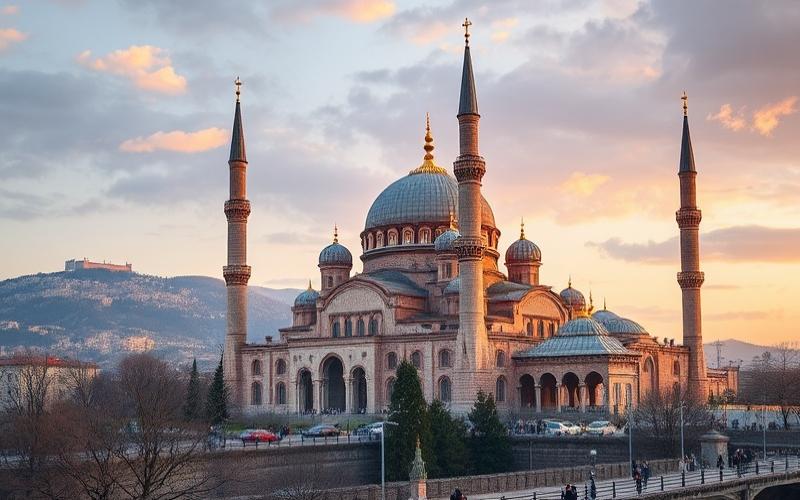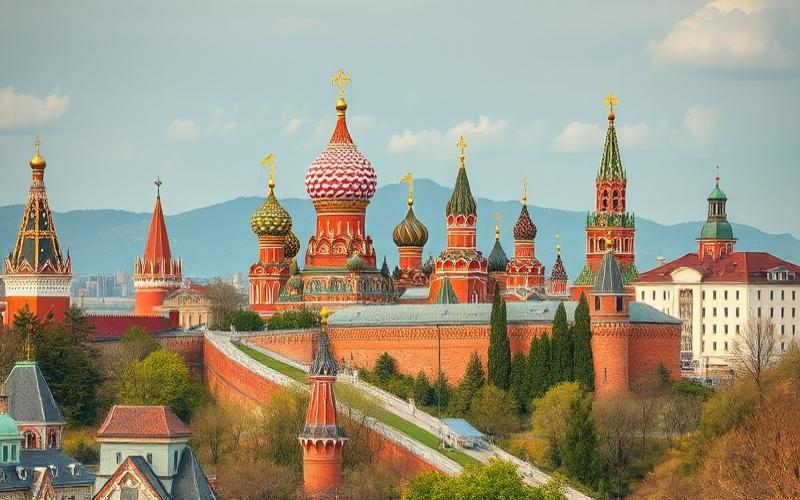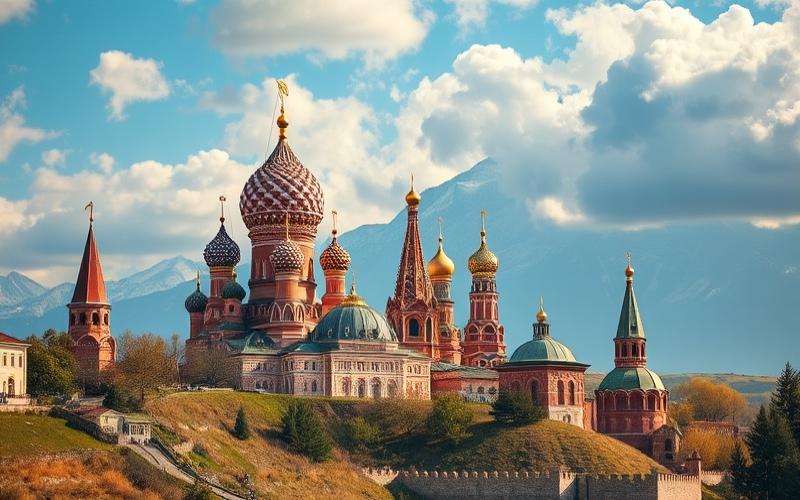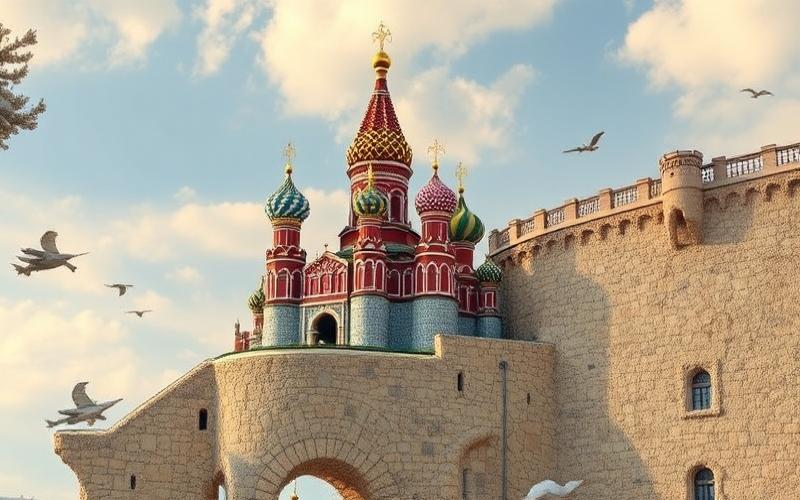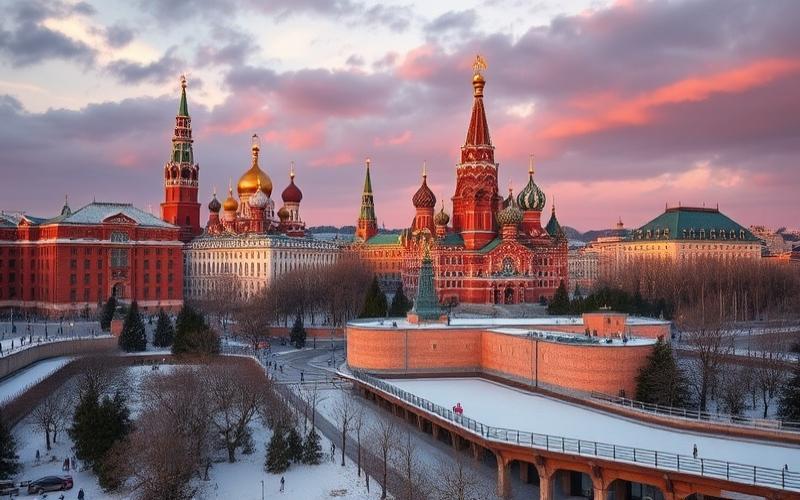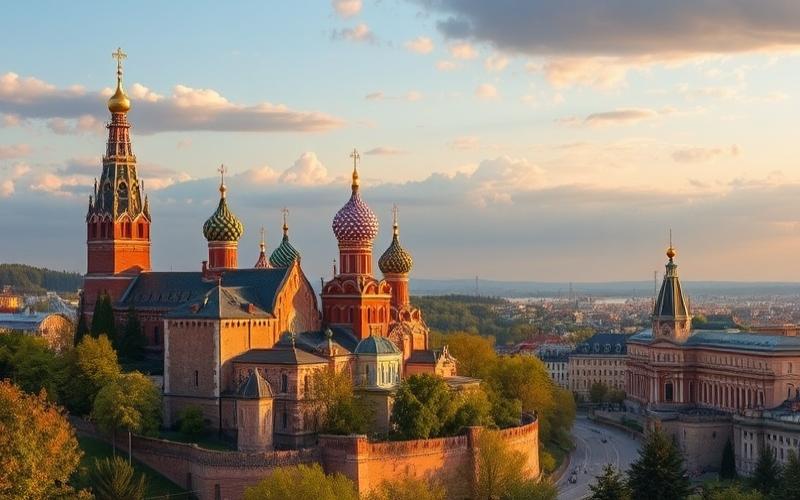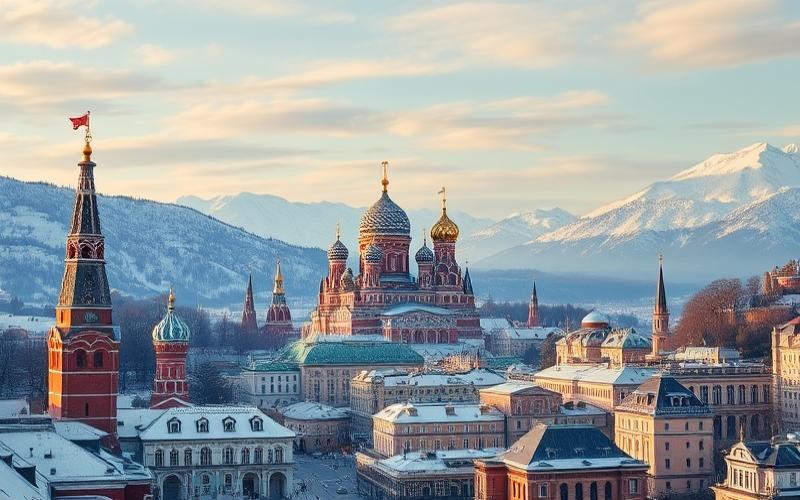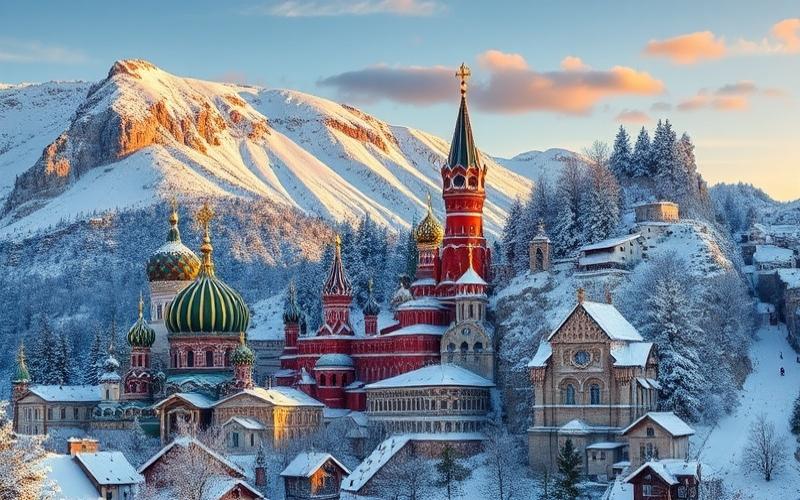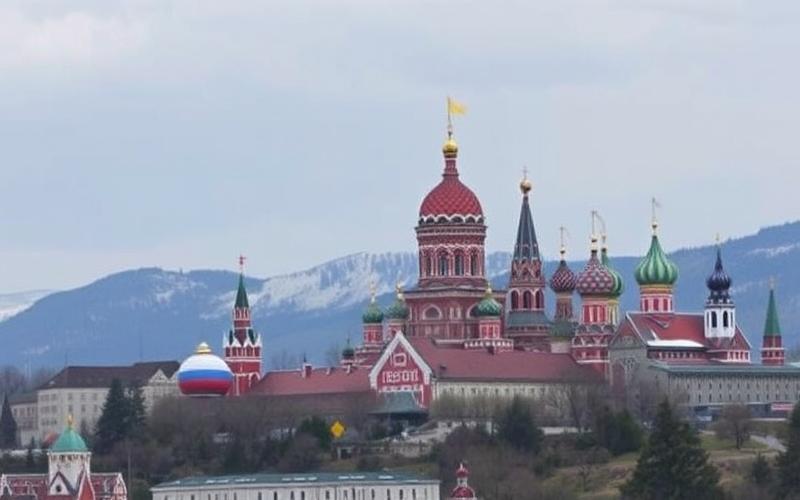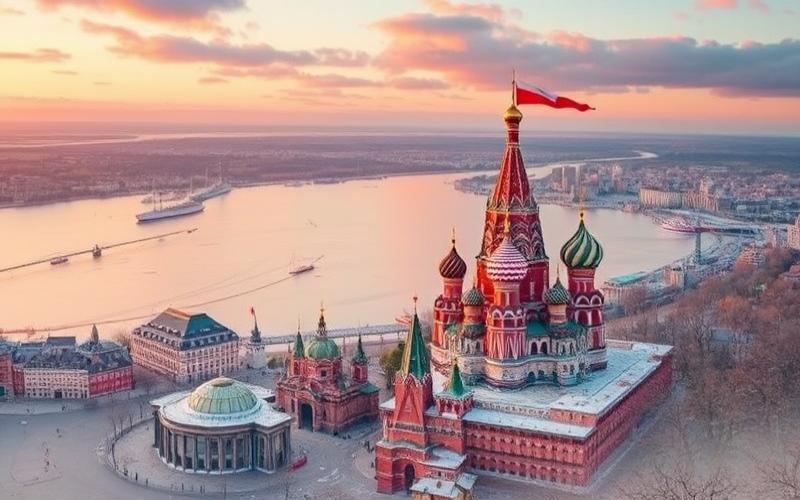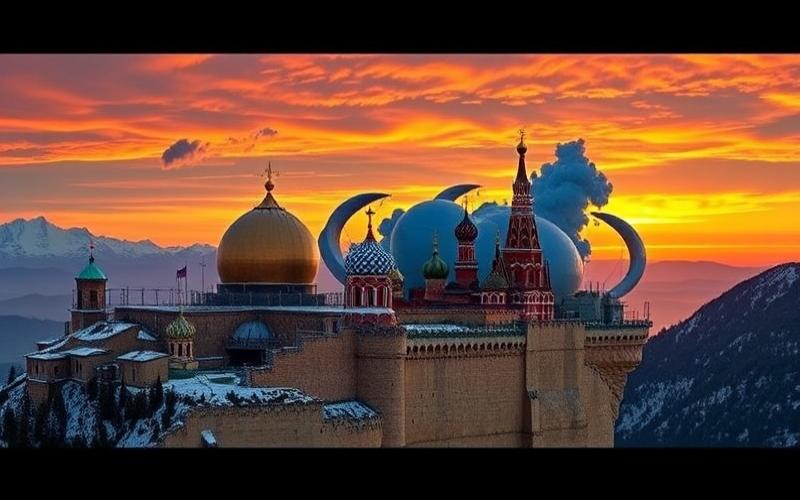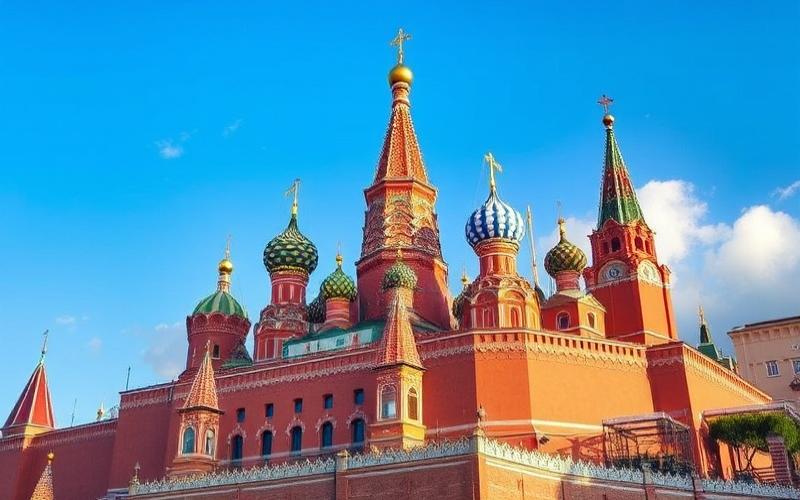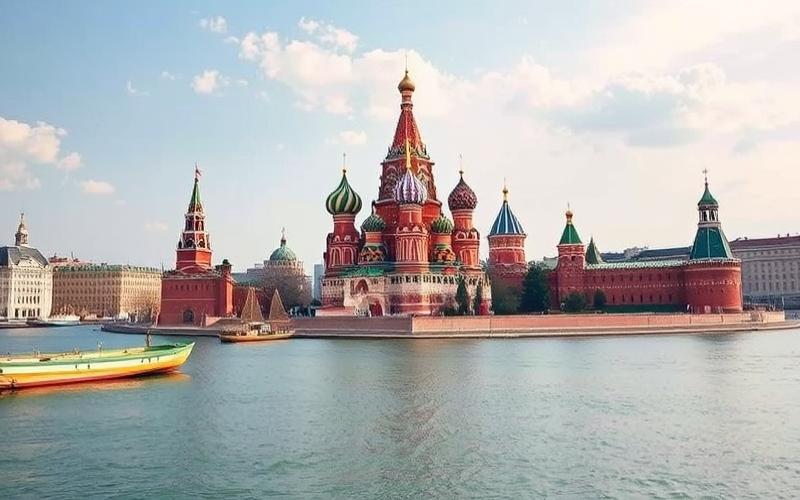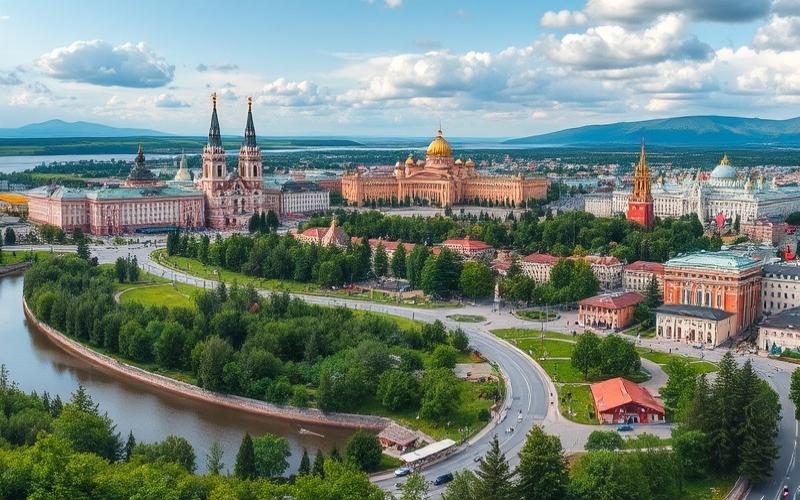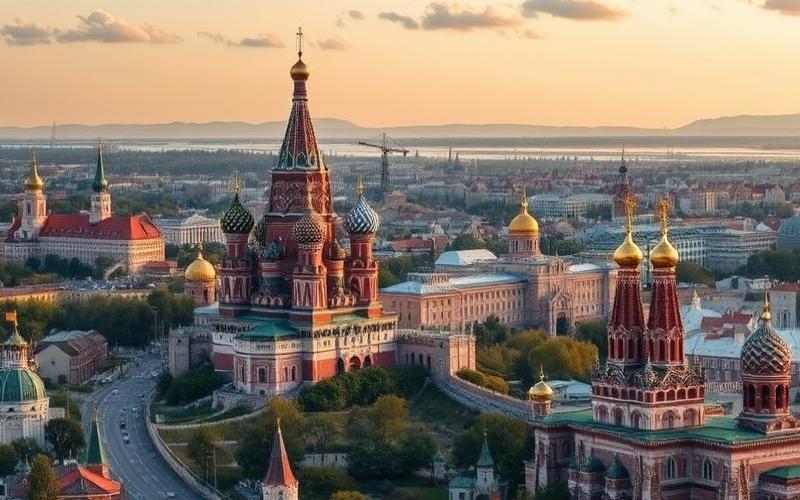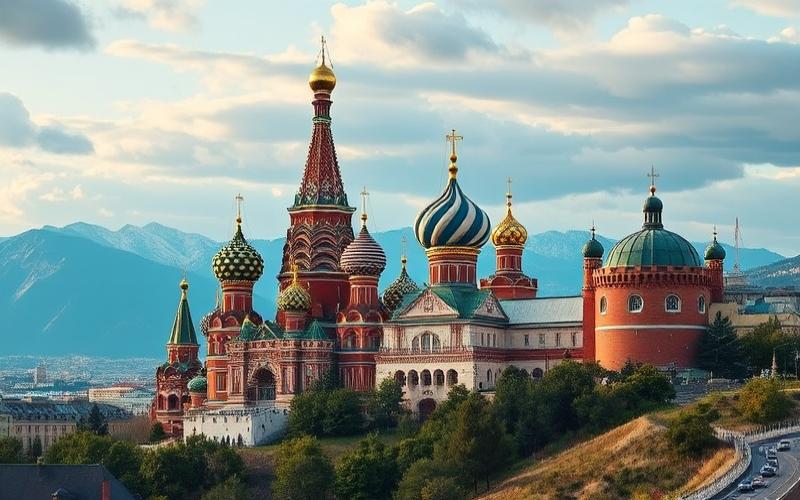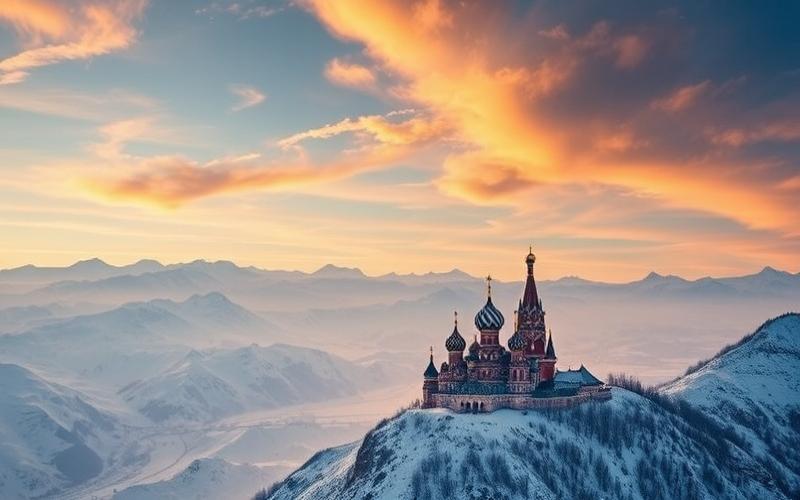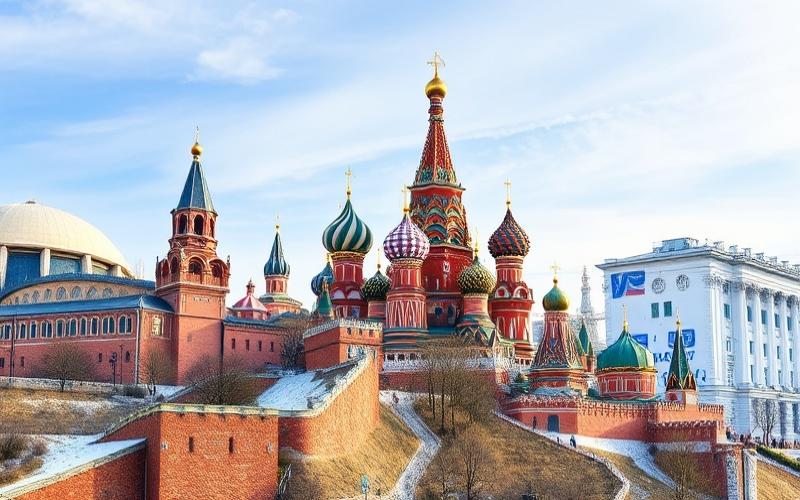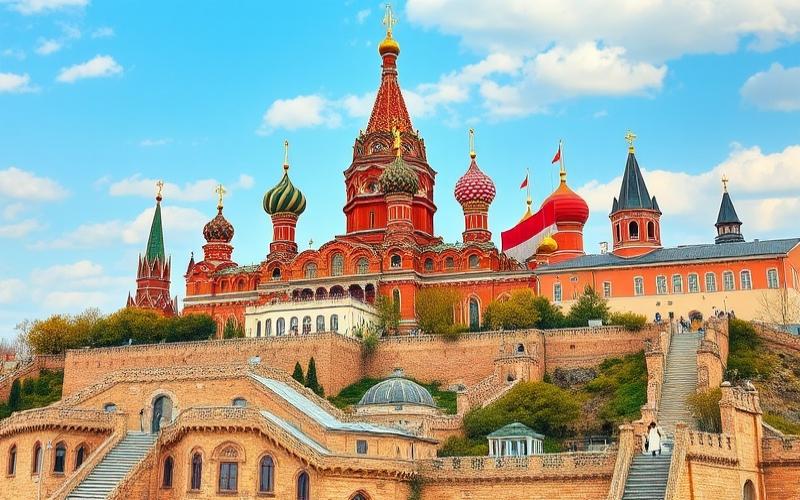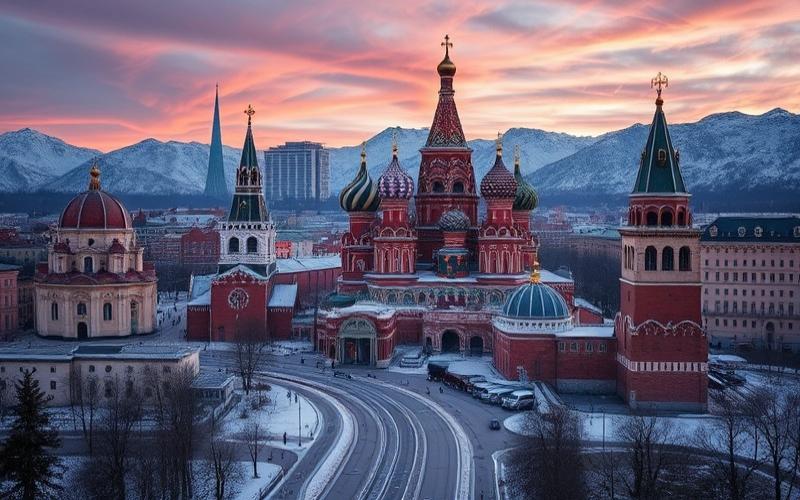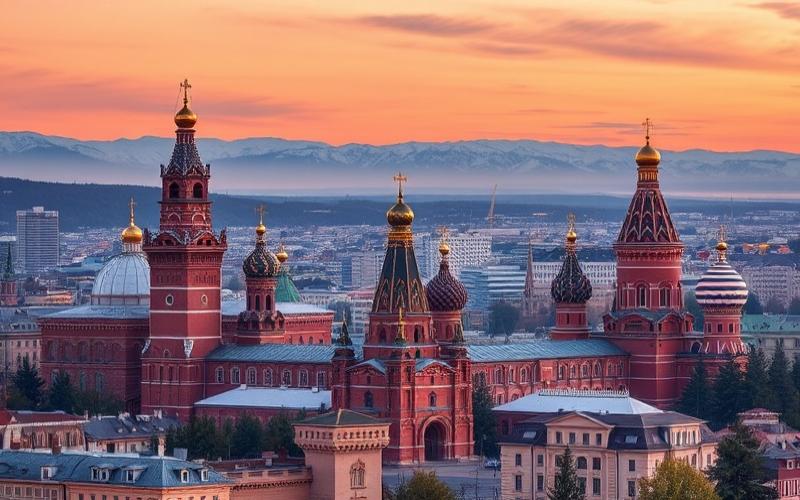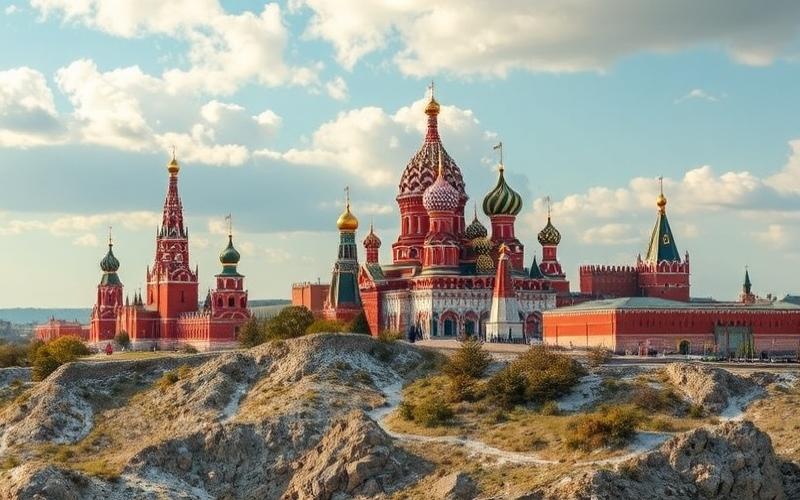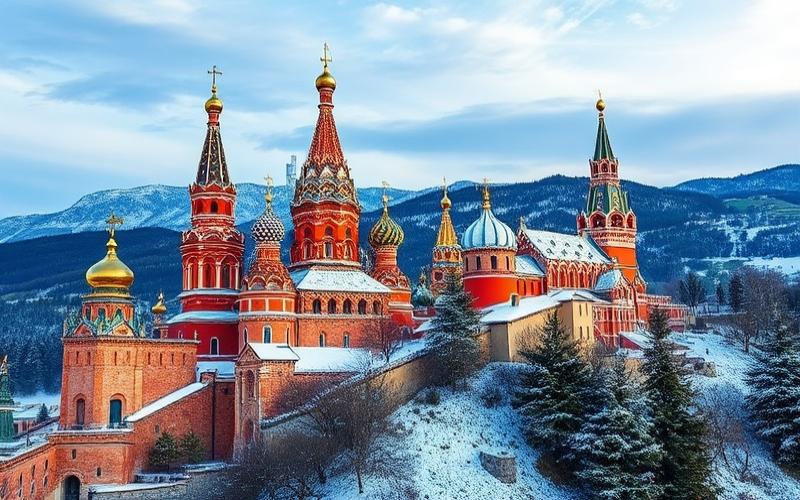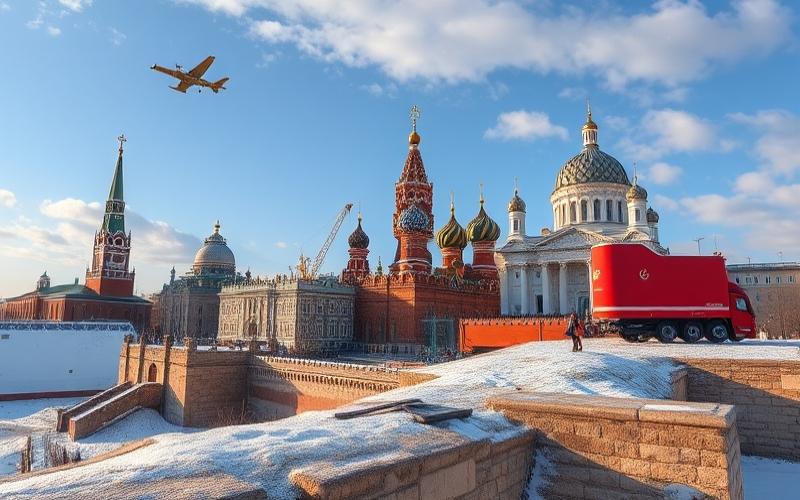
 Published on and written by Cyril Jarnias
Published on and written by Cyril Jarnias
Venturing into Russia as an expatriate is a fascinating experience, but before immersing yourself in this rich and diverse culture, it’s imperative to understand the cost of living in this vast country that spans eleven time zones.
Whether you choose to settle in dynamic Moscow or cultural Saint Petersburg, it’s essential to know how daily expenses will impact your budget.
Between housing, groceries, transportation, and leisure, every aspect of daily life must be anticipated to avoid unpleasant surprises.
This article provides a detailed overview of the costs you’ll face living in Russia, allowing you to best prepare for your professional relocation.
Understanding the Cost of Living in Russia for Expatriates
The cost of living in Russia for expatriates varies significantly depending on the city, professional status, and economic fluctuations, but remains generally lower than in major Western European capitals.
| Element | Moscow | Saint Petersburg | Regions/Rural |
| Housing | Very expensive, €700–1800/month for an apartment in the center. High demand, elevated rents in neighborhoods popular with expatriates. | Cheaper than Moscow, €500–1200/month in the center. | Much cheaper, sometimes half the price compared to major cities. |
| Food | Groceries 40% cheaper than in France. Restaurant meals: €8–15 (budget to mid-range). | Comparable to Moscow, sometimes slightly cheaper. | Local products very affordable, few restaurants. |
| Transportation | Subway: ~€0.50 per ticket. Affordable monthly pass. Cheap taxis via apps. | Same level as Moscow, dense and efficient network. | Less public transportation, more car travel, variable cost. |
| Leisure | Wide choice, museums, concerts, nightlife. Moderate prices: cinema €4–7, gym membership €25–50/month. | Rich culture, museums, theaters, nightlife. | More limited leisure options, often cheaper. |
Gap Between Major Cities and Rural Regions:
- Moscow and Saint Petersburg concentrate the majority of expatriates and display the highest prices, especially for housing and certain leisure activities.
- In regional areas, costs drop significantly, particularly for housing, but services and infrastructure are more limited.
Impact of Exchange Rate and Inflation:
- The ruble being unstable, expatriates paid in strong currencies (euros, dollars) see their purchasing power increase during ruble depreciation, but local prices can rise quickly with inflation.
- Inflation mainly affects imported products (food, electronics), which can become significantly more expensive from one year to the next.
Differences According to Professional Status:
- Expatriate executives often benefit from company housing and partial coverage of expenses by their employer. Their standard of living is therefore much higher than that of students or local workers.
- Students frequently live in shared apartments or university residences (very affordable, sometimes less than €100/month), manage a tight budget, prioritize public transportation and university cafeterias.
Expatriate Testimonials:
“In Moscow, you live very comfortably on €2,000 per month, especially if you’re paid in euros. The subway is modern and affordable, restaurants are good and cheaper than in France.”
“Groceries are about 40% cheaper than in France, but some imported products cost double. Housing remains the main expense.”
“As a student, I have a small budget, but life in Saint Petersburg is easier than in Paris: efficient public transportation, affordable cultural life, reasonable rents in shared apartments.”
Comparison with Other European Countries:
- Russia remains 38 to 57% cheaper than France or Germany for daily living.
- Moscow, despite its reputation as an expensive city, remains more affordable than Paris, London, or Munich, especially for dining and transportation.
- Limited purchasing power for locals, but advantageous for expatriates benefiting from external income.
Key Takeaway:
The cost of living in Russia for an expatriate largely depends on the city, lifestyle, and professional status. Moscow and Saint Petersburg are significantly more expensive than regional areas, but remain attractive compared to major European metropolises. Ruble fluctuations and inflation can significantly impact expenses, but a salary in strong currency remains a major advantage.
Good to Know:
The cost of living in Russia varies considerably between major cities and rural areas, with Moscow and Saint Petersburg often more expensive; knowing the exchange rate and inflation is essential for managing expenses, especially for students or executives. Expatriate testimonials highlight that rent in Moscow can rival prices in Paris, but transportation is significantly cheaper than in London.
Comparing Local Prices with Other Destinations
The cost of living in Russia for expatriates is generally lower than in many Western countries, with notable differences depending on cities and lifestyles. The main expenses concern housing, food, transportation, and leisure, and these categories remain generally affordable compared to other popular expatriate destinations.
Overview of Main Expense Categories in Russia (Moscow and Major Cities)
| Expense Category | Average Cost in Moscow (EUR/month) | Comparison with France |
|---|---|---|
| 1-Bedroom Rent City Center | 600 – 1,000 | 1.5 to 2 times cheaper |
| Monthly Food Expenses | 200 – 300 | 30-40% cheaper |
| Mid-Range Restaurant Meal | 15 – 35 | 2 times cheaper |
| Public Transport Ticket | 0.5 – 0.7 | 3 times cheaper |
| Monthly Transport Pass | 25 – 35 | 2 to 3 times cheaper |
| Taxi (5 km, in city) | 2 – 4 | 2 to 3 times cheaper |
| Basic Food Basket | 40% cheaper |
Estimated Monthly Cost of Living for a Single Person (Major City)
Russia: €1,000 to €1,400
France: €1,700
United Kingdom (London): €2,200
China (Shanghai/Beijing): €1,500 – €1,900
United States (New York): €2,500 and more
International Comparison of Common Prices
| Product/Service | Russia (Moscow) | United Kingdom (London) | China (Shanghai) | United States (New York) |
|---|---|---|---|---|
| 1-Bedroom Rent City Center | €600 – €1,000 | €2,000 – €2,800 | €700 – €1,300 | €2,500 – €4,000 |
| Mid-Range Restaurant Meal | €15 – €35 | €25 – €50 | €10 – €25 | €25 – €50 |
| Subway/Bus Ticket | €0.5 – €0.7 | €3 | €0.5 | €2.5 |
| Monthly Transport Pass | €25 – €35 | €150 | €25 | €120 |
| Taxi (5 km) | €2 – €4 | €12 | €2 – €4 | €10 – €15 |
| Bread (500g) | €0.60 | €1.40 | €1.00 | €3.00 |
| Apples (1kg) | €1.40 | €2.30 | €2.00 | €4.00 |
| Chicken Breast (1kg) | €4.50 | €8.50 | €4.00 | €11.00 |
Price Differences and Cultural/Economic Factors
Housing: Rents in Russia remain significantly lower than in major Western cities, even in Moscow. However, the quality and modernity of housing can vary considerably. Outside Moscow and Saint Petersburg, prices drop by 30 to 50%.
Food and Restaurants: Local products (bread, fruits, meats) are much cheaper than in Europe or the United States, especially if you prioritize Russian markets and supermarkets. Restaurants are affordable, even in central neighborhoods.
Transportation: The public transportation network is dense and very inexpensive, with efficient and modern services in major Russian cities. Taxis (especially via apps) are also very accessible.
Leisure: Cinemas, theaters, and museums display much lower prices than in the West, allowing you to enjoy a rich cultural life at a lower cost.
Economic Factors: Price differences are partly explained by a lower standard of living and average salaries in Russia, but also by public policies that heavily subsidize certain services (transportation, energy).
Tips for Expatriates to Optimize Their Budget in Russia
- Prioritize local products rather than imports, which are much more expensive.
- Choose housing outside the center or share an apartment to reduce costs.
- Use public transportation rather than cars or taxis for daily commutes.
- Take advantage of delivery apps and ride-sharing, often very economical.
- Shop at markets or Russian chains and avoid Western brands.
- Inform yourself about discounts and cultural subscriptions for leisure activities.
- Learn some basic Russian to access local offers and avoid “tourist” prices.
Key Takeaway
The cost of living in Russia allows expatriates to enjoy good material comfort at a price well below that of major Western metropolises, provided they adapt to the local culture and prioritize Russian economic solutions.
Good to Know:
In Russia, rents are often more affordable than in the United Kingdom or United States, but the cost of some imported food products can be higher; prioritize local markets to save money. Use ride-sharing apps to reduce transportation costs, as taxis can quickly become expensive.
Planning the Ideal Budget for a Smooth Relocation to Russia
Housing
| City/Region | Monthly Rent (1 bedroom, city center) | Monthly Rent (1 bedroom, outskirts) |
|---|---|---|
| Moscow | 70,000 to 110,000 RUB | 45,000 to 70,000 RUB |
| Saint Petersburg | 50,000 to 85,000 RUB | 35,000 to 55,000 RUB |
| Regional Cities (e.g., Kazan, Samara) | 25,000 to 40,000 RUB | 15,000 to 30,000 RUB |
Major cities like Moscow and Saint Petersburg display significantly higher rents than less centralized regions.
Family apartments (2-3 bedrooms) can cost from 120,000 to 250,000 RUB in Moscow and 60,000 to 120,000 RUB in provincial areas.
Transportation
| Transport Type | Moscow / SPB (unit price) | Regional Cities |
|---|---|---|
| Subway/bus (single ticket) | 65-80 RUB | 35-50 RUB |
| Monthly Transport Pass | 2,300-3,000 RUB | 1,000-1,500 RUB |
| Taxi (5 km trip) | 400-700 RUB | 200-350 RUB |
The public transportation network is dense and affordable in major cities. Taxis are cheaper in provincial areas, but public transportation frequency is often lower there.
Food
| Common Product | Average Price (RUB) |
|---|---|
| Bread (500 g) | 55 |
| Milk (1 L) | 85 |
| Eggs (10) | 110 |
| Apples (1 kg) | 130 |
| Chicken (1 kg) | 320 |
| Rice (1 kg) | 110 |
| Coffee (250 g) | 250 |
The basic food basket remains affordable, but inflation and ruble fluctuations can lead to regular price increases.
Healthcare
- Medical insurance for expatriates: from 80,000 to 200,000 RUB/year depending on age, coverage, and company.
- Private consultation: 2,500 to 8,000 RUB depending on specialty and city.
- Hospitalization: highly variable, international insurance is strongly recommended to avoid high costs in case of serious problems.
Education
| Type of Institution | Average Annual Fees (RUB) |
|---|---|
| International School (primary) | 1,200,000 to 2,500,000 |
| International School (secondary) | 1,600,000 to 3,500,000 |
| International Kindergarten | 800,000 to 1,400,000 |
Russian public schools are free, but instruction in Russian remains the norm.
Administrative
| Administrative Expense | Cost (RUB) |
|---|---|
| Visa (1 year, multiple entries) | 10,000 to 20,000 |
| Temporary Residence Permit (RVP) | 1,600 |
| Permanent Residence Permit (VNZh) | 5,000 |
| Translation and Legalization | 1,000 to 10,000 |
Budget for renewal fees, translation, and potential administrative support services.
Managing Currency Fluctuations and Money Transfers
- The ruble is volatile: it’s advisable to track its evolution via apps like XE, TransferWise, or local resources such as Банки.ру.
- Prioritize transfers through specialized services (Wise, Revolut, Western Union) to reduce hidden fees and benefit from more competitive exchange rates.
- Opening a local bank account can facilitate management of daily expenses and limit the impact of rate variations.
Practical Suggestions for Optimizing Budget
- Compare housing offers on local platforms (Cian, Avito) before signing a lease.
- Prioritize public transportation and subscribe to a monthly pass.
- Buy local seasonal products at markets to reduce food expenses.
- Use online resources to monitor cost of living: Numbeo, Expatistan, Банки.ру.
- Negotiate school fees or look for partner institutions that may offer discounts for expatriates.
For real-time tracking of the cost of living, regularly consult specialized platforms and adjust your budget according to ruble evolution and inflation.
Good to Know:
In major Russian cities, apartment rent can reach €1,200 per month, while in regional areas, it’s often below €500; compare food prices on platforms like Numbeo and plan for international health insurance to cover medical expenses.
Disclaimer: The information provided on this website is for informational purposes only and does not constitute financial, legal, or professional advice. We encourage you to consult qualified experts before making any investment, real estate, or expatriation decisions. Although we strive to maintain up-to-date and accurate information, we do not guarantee the completeness, accuracy, or timeliness of the proposed content. As investment and expatriation involve risks, we disclaim any liability for potential losses or damages arising from the use of this site. Your use of this site confirms your acceptance of these terms and your understanding of the associated risks.

